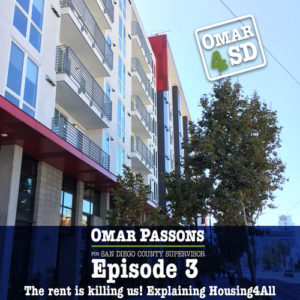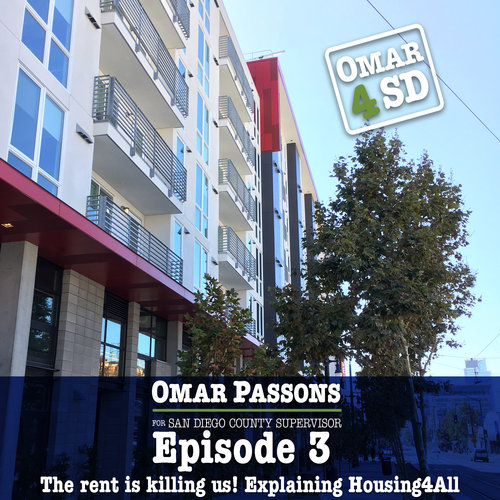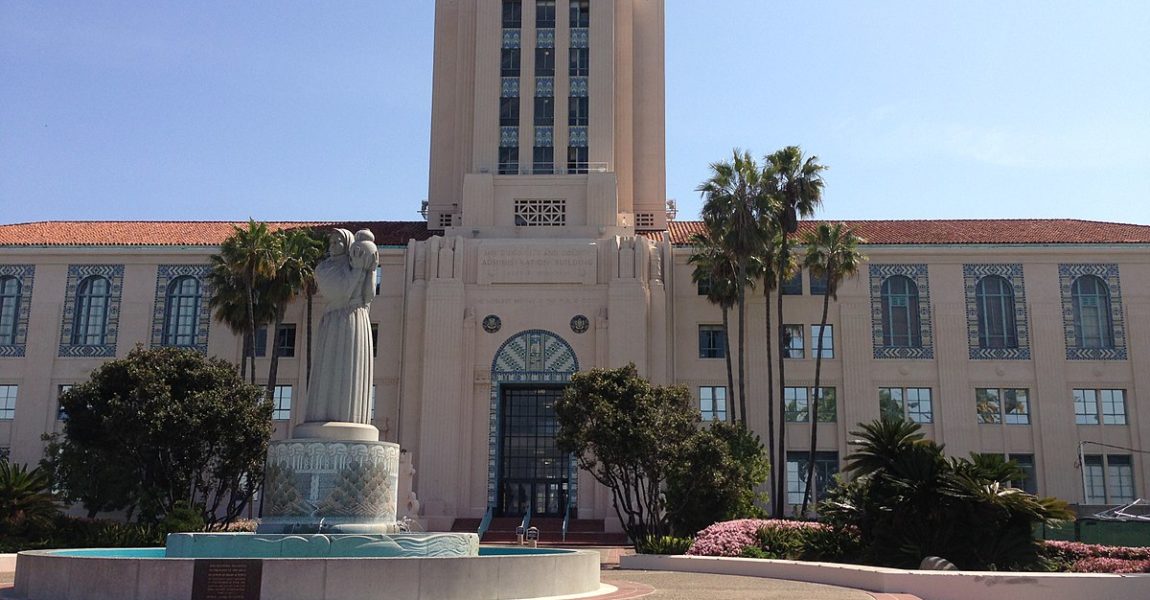Episode 3: The rent is killing us! Explaining Housing4All and our plan to address the housing crisis

(Click the play button below to listen to Episode 3 – 15:03 minutes)
Summary of Episode 3
San Diego is a beautiful place to live. The weather is great, the people are friendly, and there is plenty of year-round outdoor fun to be had. Add to that one of the top life sciences regions in the world, fun and economically impactful craft beer and hospitality sectors, and world class higher education, and San Diego is a highly desirable city to call home. One problem. We have a finite amount of land, too much climate-crippling sprawl, and a growing population of residents. The result? Really, really expensive housing.
In this podcast episode, we explore the basic mechanics of how our high cost of living is driven by the housing market, and specific policy steps identified in our Housing4All plan that we can take to change this. San Diego will always have a weather advantage over most of the country. We can’t rest on that advantage because if more people in the middle class cannot afford to live here, there will be no one to build new homes, no one to work in our local industries, and no one to teach our children or care for our seniors. A top-heavy economic structure hurts our long-term economic competitiveness.
You’ll hear in this podcast how I believe that specific steps, like overhauling County zoning, streamlining building processes and investing in youth construction workforce and paid internships can bring down the cost of entry level homes. My campaign was also the first of any candidacy in the region to call for a long-term, local source of affordable housing funding because we recognize that the market simply cannot solve all our housing needs on its own – no matter what the textbooks might suggest.
As a construction and land use attorney, I have spent much of my career focused on helping get things built in the public and private sectors – so I understand the challenges and our Housing4All plan reflects my background and perspective. Thanks for listening!









![Episode 1: [Introduction] From foster care to attorney – luck, love, and the law](https://www.omarpassons.com/wp-content/uploads/2018/01/Podcast-Episode1.jpg)
